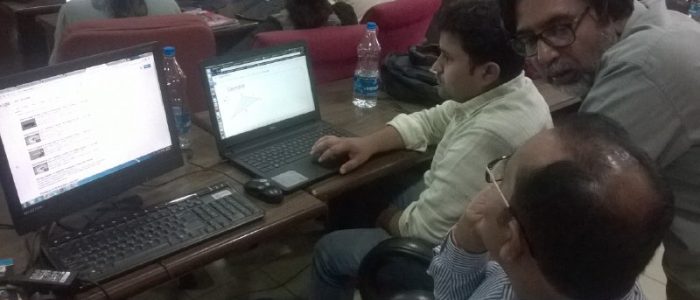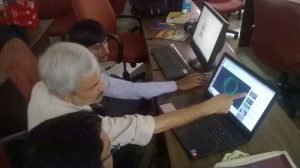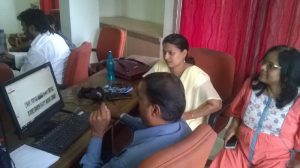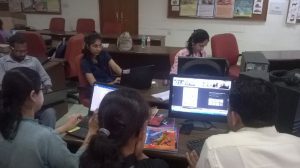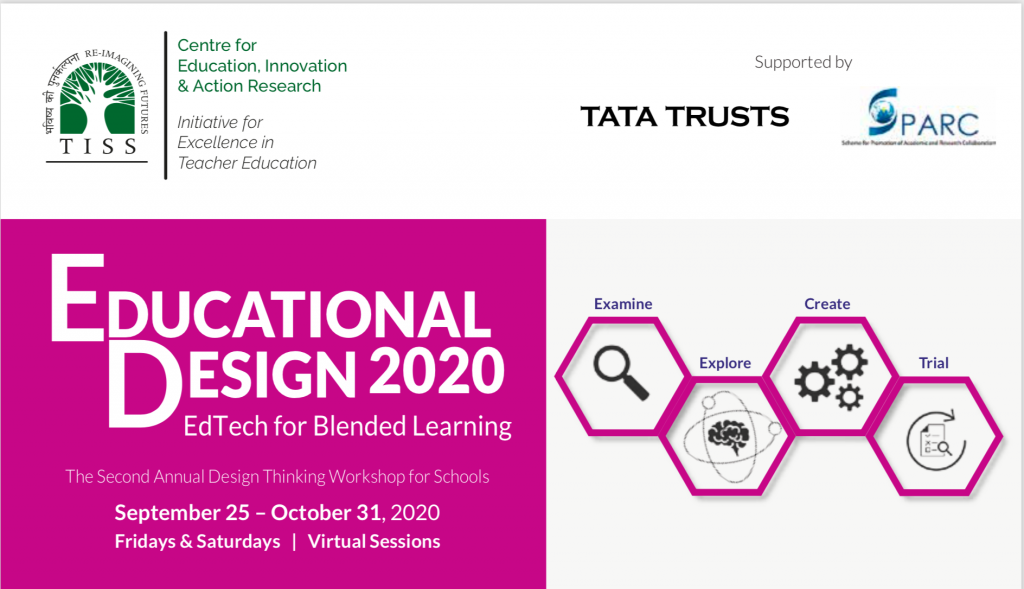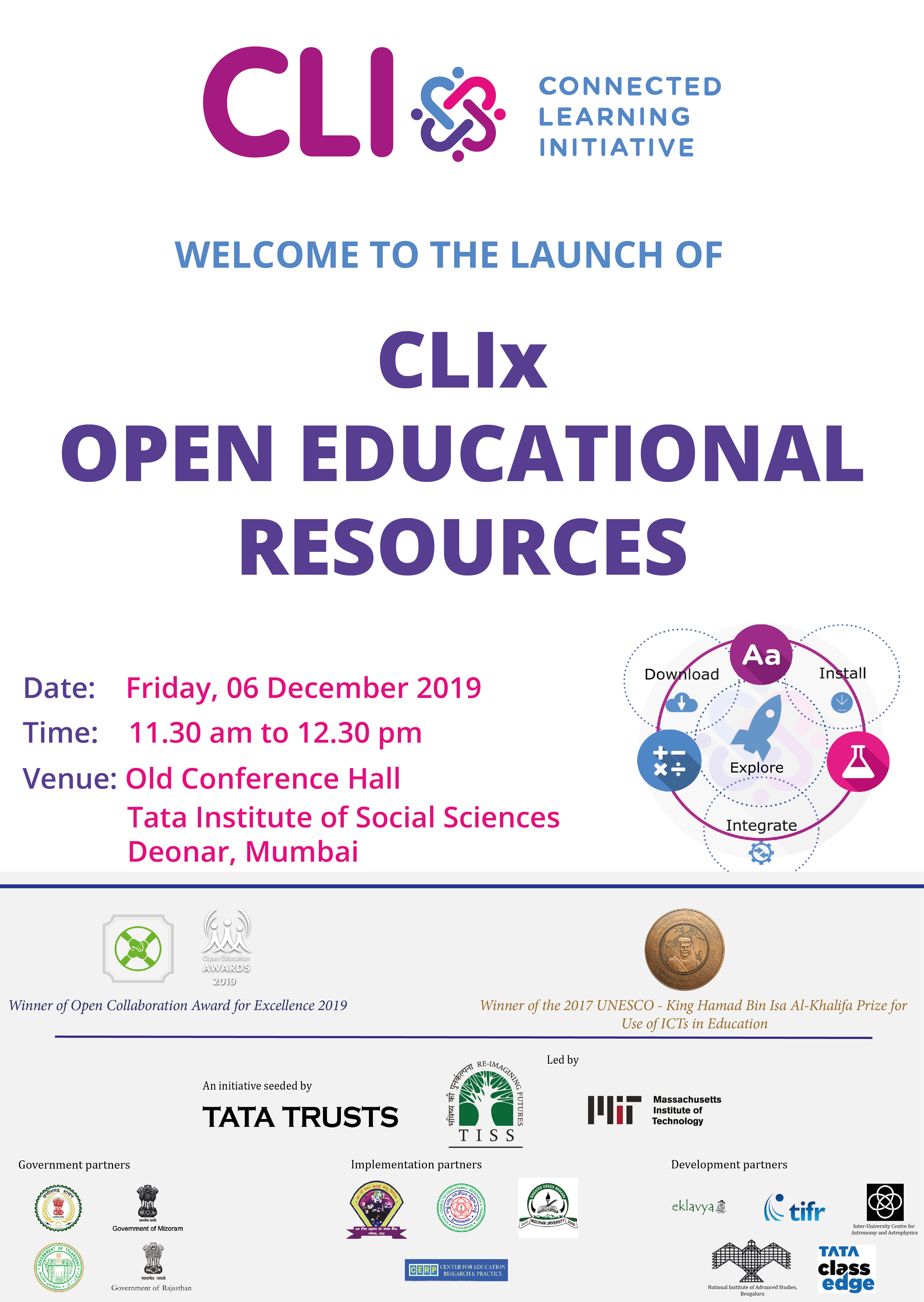SCERT, Chattisgarh: OER Workshop for 250 High Schools
SCERT conducted a four-day in-house workshop on Curriculum Mapping and open educational resources (OER) from 27 June to 30 June 2017 in collaboration with the Tata Institute of Social Sciences, Mumbai. Prof. G. Nagarjuna of HBCSE-TIFR, Mumbai, and Gurumurthy K. and Ranjani of IT for Change, Bangalore, shared their vast experience with teachers working on open software. Open resources are not free in the sense of being available free of charge. Instead, as Guru explained in one of his session, free implies the freedom to imagine and construct our own educational resources. Open resources should be chosen with imagination to combine content and pedagogy to create a vibrant learning environment. Technology should be used to facilitate active learning, where teachers and students become creators instead of mere consumers of knowledge.
The workshop was attended by high school teachers, representatives from the Azim Premji Foundation, SCERT faculty members and government officials, CLIx domain and implementation team members, and professionals from the Homi Bhabha Centre and IT for Change.
Participants were given an orientation on how to identify which of the resources available online were open and could be used to address individual teaching and learning needs. There were sessions on how to search for available open resources on the internet that could be used in the classroom. The workshop stressed the need to create a community of learners and educators who can foster an interactive learning culture. Peer feedback and comments are a necessary part of the learning process and need to be encouraged. Participants were oriented to metastudio.org and asked to gather open eduware that could be shared by all. Sessions on the last day showed teachers how to author activities, lessons and assessment on the platform. Other participants were then invited to view and comment on the resources curated and created by everyone.
Key takeaways from the workshop were the 5R – Re-use, Revise, Re-mix, Re-distribute and Retain. Some new representations of content explored in the workshop were audio, image, video, Open street maps, simulations and animations. Several OER websites were also shared as possible resource spaces for teachers, particularly for mathematics and science. These included teacher-network.in, KOER, DOER, TROER and wikimedia. Initially, participants (science, English and maths teachers) were apprehensive about the outcomes of the workshop. There was also the worry that it would be difficult to find materials that directly related to textbook content. As the workshop progressed, however, and with increasing hands-on practice, teachers became less anxious and started taking an active role in sourcing and even creating new materials from existing or raw resources.
On the last day of the workshop, SCERT Director Sri Sudhir Kumar Agrawal announced that CLIx would continue working on OER in at least two districts of Chhattisgarh. This workshop proved to be a strong collaboration between SCERT, TISS, HBCSE and IT for Change.
(Saurav Mohanty, Senior Field Action Research Fellow, Chhattisgarh Implementation team, CLIx)


